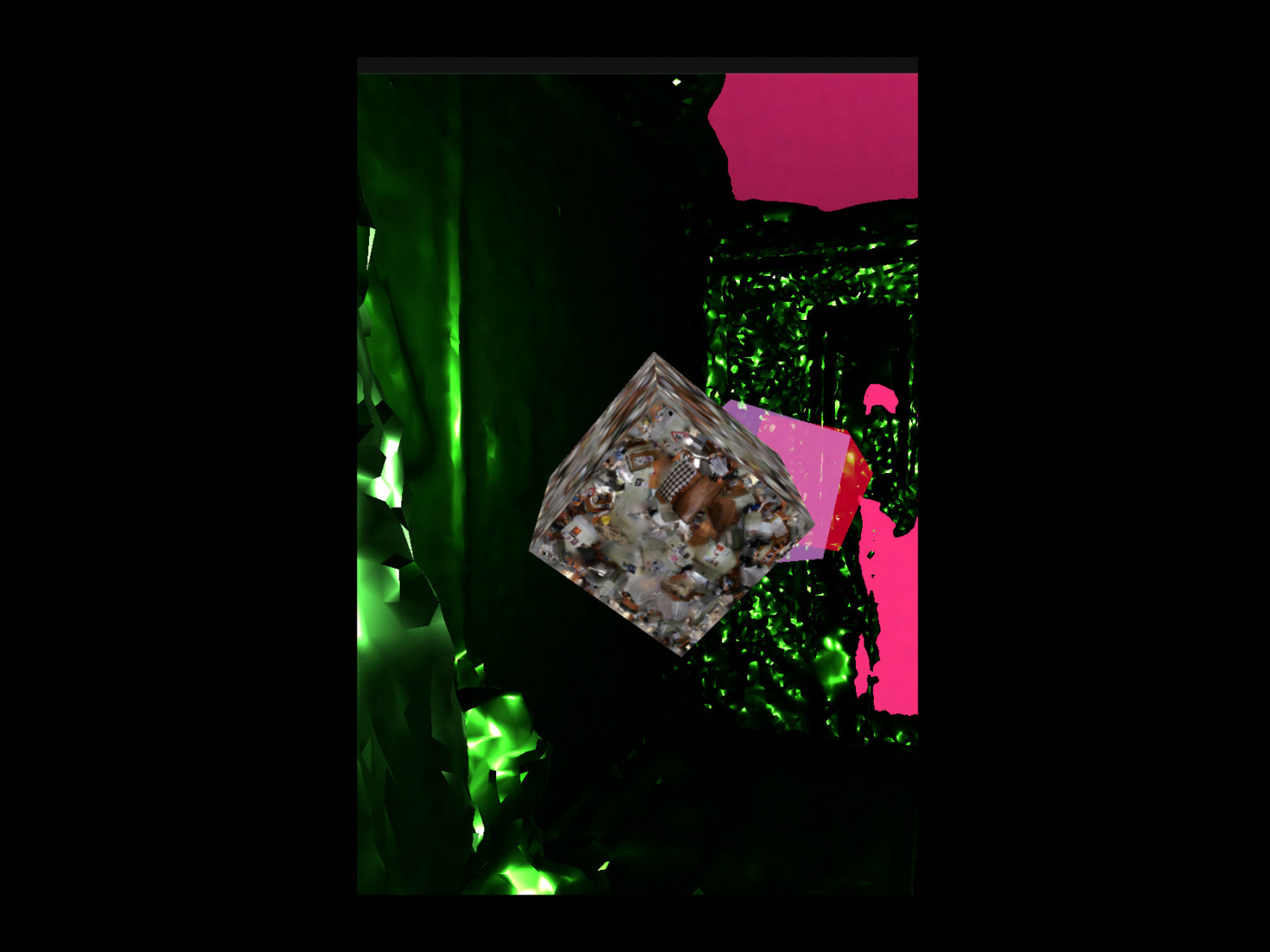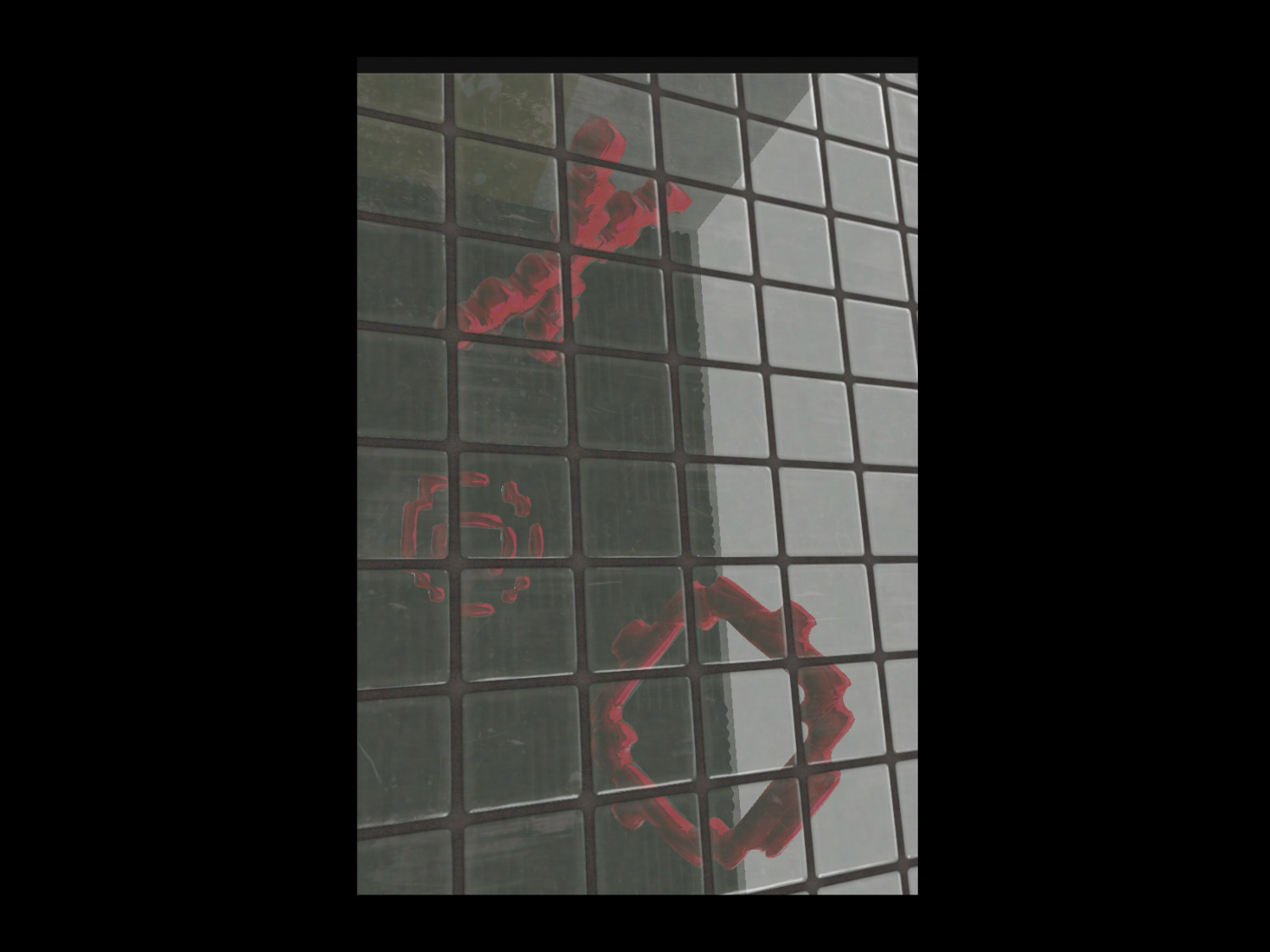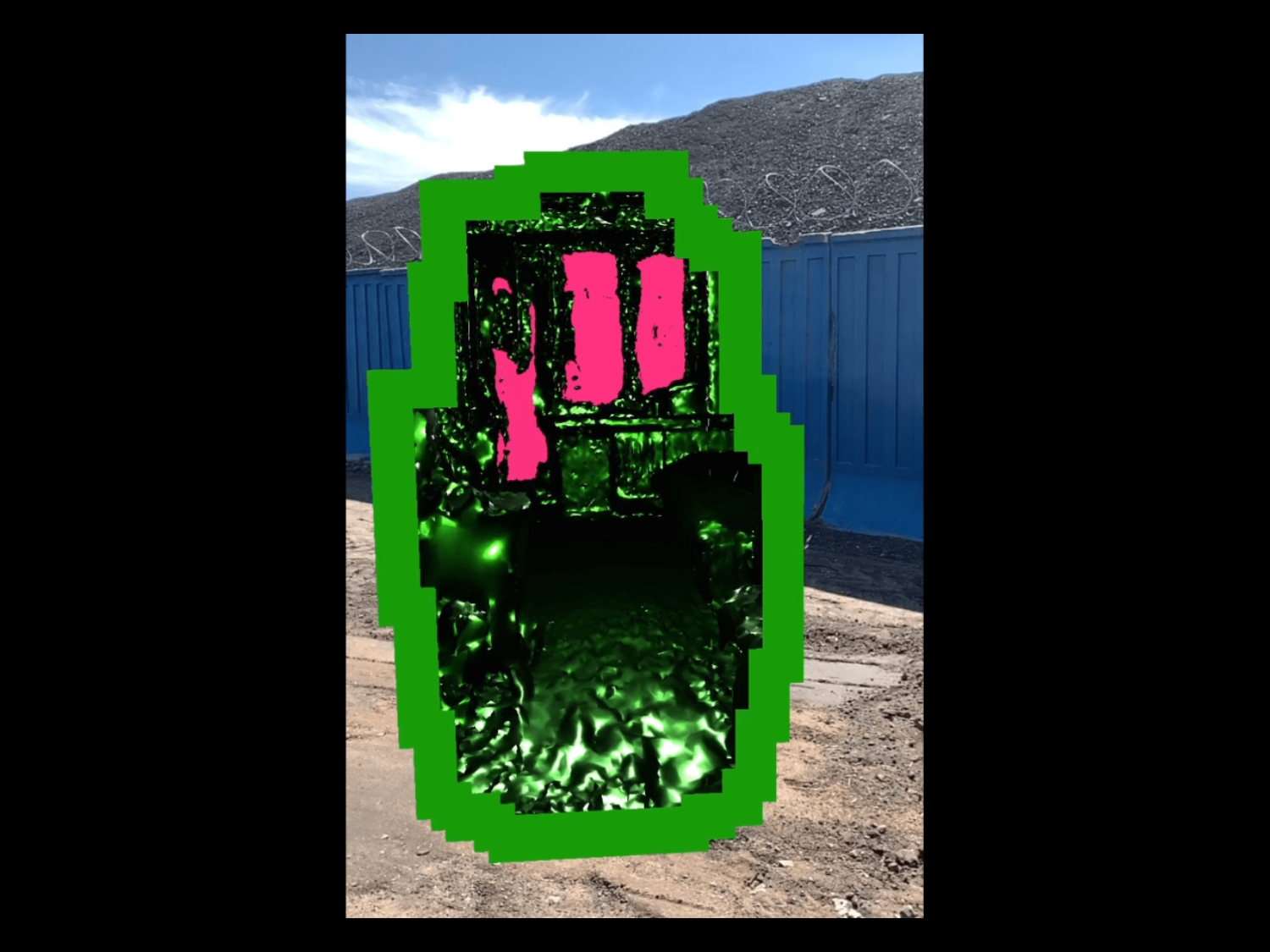
Captical Voyage
Augmented Reality Performance
Capital Voyage is an Augmented Reality performance that uses the ARKit framework and is only available for iOS and iPadOS devices. Capital Voyage is about sensuality, where the balance of power between body, code, and technology has already transformed; where privacy and data do not exist; where we can see how information is obtained and processed.

It is a crucial time to shift from a quantitative to a qualitative view of what has become a part of the new normal. It is boring to talk about screens, protocols, and memory. When it became almost natural to swipe a finger on a screen, we just erased the information, and we forgot about technologies.

Read the essay "Data Is Finally Over" on Capta and the future of privacy below.

Data Is Finally Over (2020)
Privacy Does Not Make Sense
Very fast return to the status quo after the Cambridge Analytica data scandal has shown that the Internet is not going anywhere. The Internet is still going to be centralized around vectoralists - the ruling class that makes data its property and a product. This class was described in "A Hacker Manifesto" by McKenzie Wark by analogy with the bourgeoisie.
While promising something completely different, the Internet industry has created hegemony of control and centralization that is lead by Google, Apple, Facebook, and Amazon. There are ways to find a reason for this scenario. For example, Alexander Galloway in 'Protocols' argues that while TCP/IP protocol creates a horizontally distributed network, the DNS has vertically stratified logic. But this glance to the past describes the current state of affairs.
Two narratives prevail on the Internet: Chinese and American. In the last one, power is concentrated in the hands of a small group of corporations. The Chinese approach declares governmental control, where there is no place for non-domestic services. It seemed like Europe could offer an alternative. Attempts of the European Union to protect the competitiveness of software and protection of user personal data gave reason to believe that there might be 'something decentralized'. Well, we are witnessing that in the current situation, you can't help but choose only between the American or the Chinese. As a result, almost the only two developers of mobile operating systems, Apple and Google collaborate on the project that develops the protocol for contact tracing during the novel coronavirus outbreak. The tracing functionality will be built right into the operating system.
The current epidemiological view on society radically changed the attitude to this project. The fact that two major corporations collaborate to create a contact tracing system built-in on the OS level was very welcomed. Outrage about 'total surveillance' would be a natural response before the spring of 2020. But now this response is almost as inappropriate as a violation of social distancing. Essentially, the Internet activist rhetorics of the 90s have lost their voice and even sense.
Nobody 'quit' Facebook after Cambridge Analytica, nobody stopped using Zoom because of their privacy issue. Maybe we had come to understand how quantitative factors of data distract from other, unaccountable properties of the new reality. We have witnessed that 'virtual' automatization turned out more durable than "real". How data and privacy exist in this paradigm? Maybe there is no such thing as data?
Is It Data?
In her books and articles (e.g. 'Graphesis: Visual Forms of Knowledge Production', Cambridge: Harvard University Press, 2014, 'Humanities Approaches to Graphical Displays', Digital Humanities Quarterly 5.1, 2011) Johanna Drucker exposes what we consider data as a construct. Data, which is derived from the Latin word 'dare', meaning 'to give', should be considered as the total sum of facts that it is possible to know about a person or an entity. The conventional use of data implies prejudices and leaves no room for its critical interpretation and concerns.
This quantitive view on information and its capturing puts only 'How?'-question, that cannot be switched to more important questions that help to critically observe Internet and algorithmisazation: 'Why?', 'Who?', 'What?'. This point of view states privacy as a norm of preservation data in the previously mentioned context: as everything that it is possible to know about that person. But data that is being collected by Facebook or Google has completely different properties that are not covered by 'quantitative-self-evident, value neutral, and observer-independent' point of view.
Drucker states that data is actually capta. This word derives from Latin verb capio, which means 'to capture, seize, take'. Latin capere, in a figurative sense, could mean 'to understand'. This term is not about bringing qualitative into quantitative; it is what is selectively measured. This redefinition precisely establishes that the act of capturing facilitates our understanding of information. Thus capta are units of information that have been taken from the sum of all potential data. Using this term, it is possible to rename, for example, databases to captabases - as a collection of capta that can be accessed, written, rewritten, etc.
Capta is an expression of information understood as constructed, thus, more complex. This particular redefinition declares a shift to uncountable factors of social formatting by digital. As an element of infrastructure and information flows, privacy is also 'included' in capta. But what is a privacy right now? Can violation of privacy and measurement of capta be considered as surveillance?
City Consists Of Code
Spring of 2020 has shown us that the Internet was not just a layer of automatization above city infrastructure. People can still live in cities, because infrastructure constantly works on multiple levels: they have stable Internet connection and infrastructure, food tech companies deliver meals that were cooked on cloud kitchens. Something that was considered as a virtual 'add-on' to reality started to exist as a natural part of reality. Here we should begin to ignore the concept of data as an observer-independent phenomenon. Capta reveals processes and their meanings. We realized, that we cannot disconnect from these processes and we see how technologies become abstract, intimate and invisible. It is possible to see what exists beyond capta collection and privacy and take into consideration technological infrastructures, hard drives, cables, and sysadmins.
We cannot critique Apple and Google for 'surveillance', because privacy, capta, and users are distributed. Cities found themselves interlinked with flows of information and vice versa. There is no longer a simple paradigm where a client requests to the server. We observe the reality where automatization is not a set of simple manageable frameworks; capta is blended, privacy is distributed. It is distributed among smartphones, CCTV cameras, thermal imaging, couriers, pick-up-point workers at Wildberries that want to protect the privacy of their data and get protective equipment and disinfection.